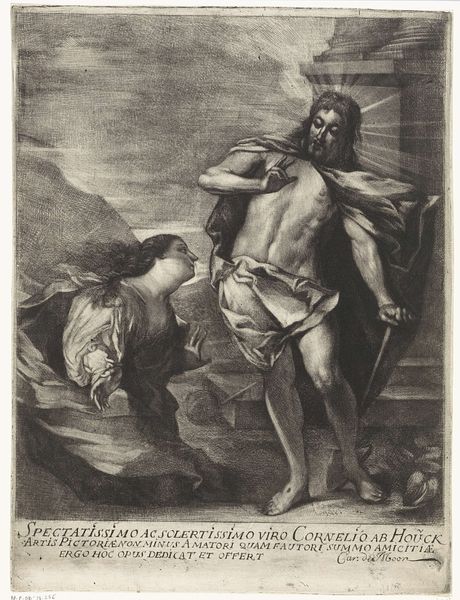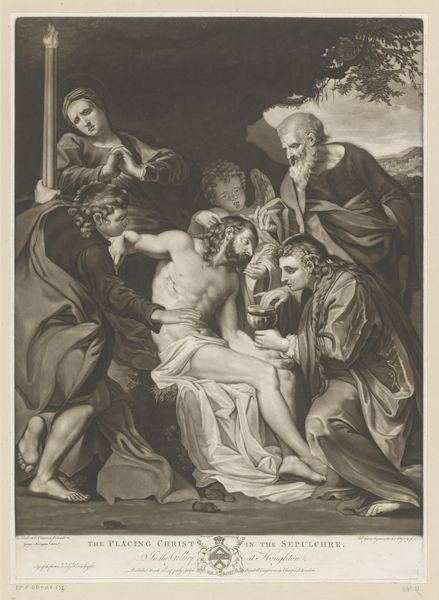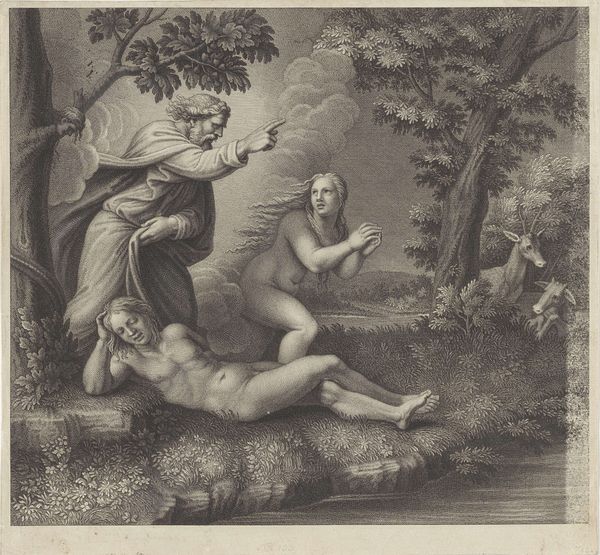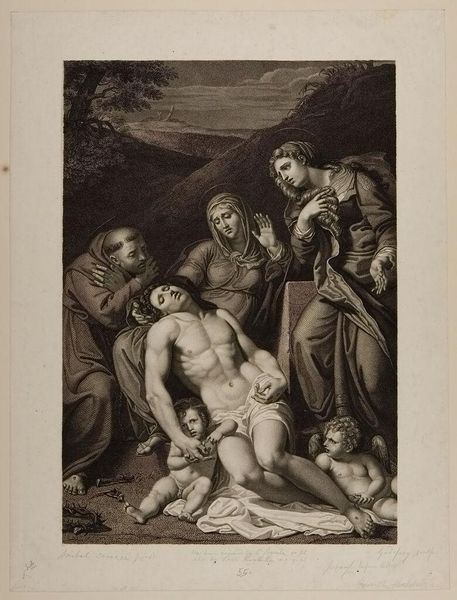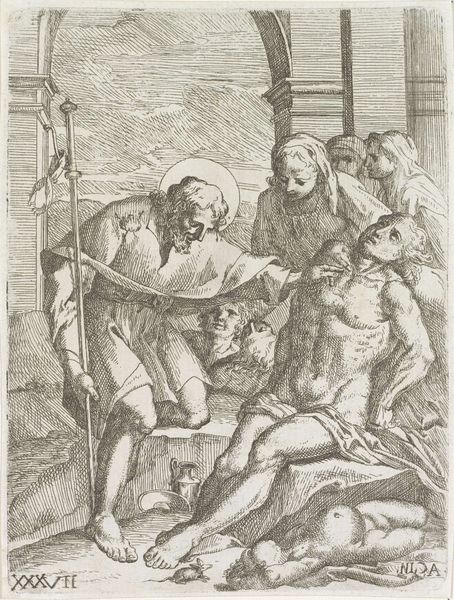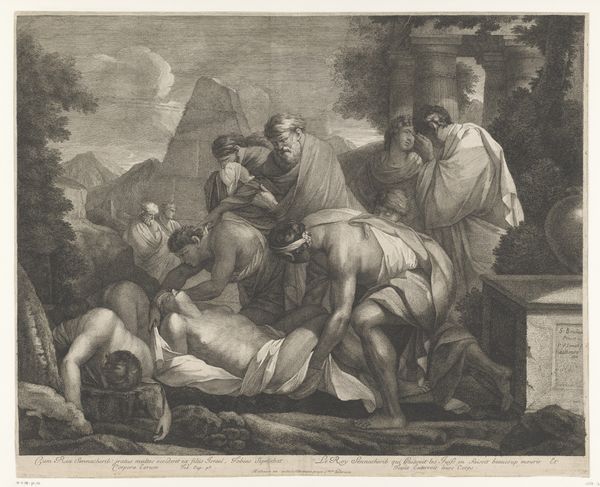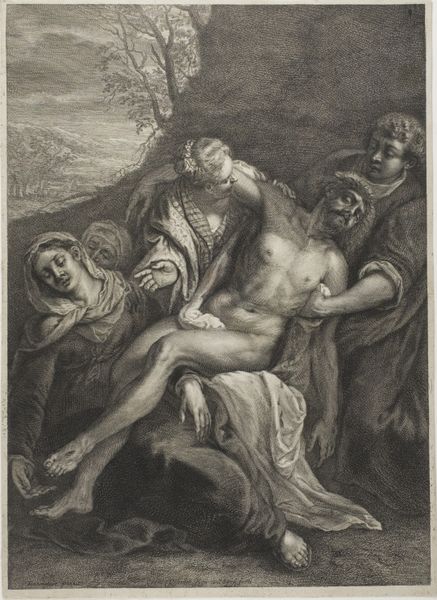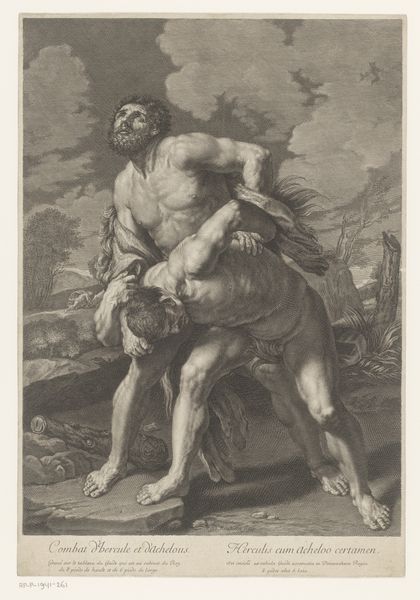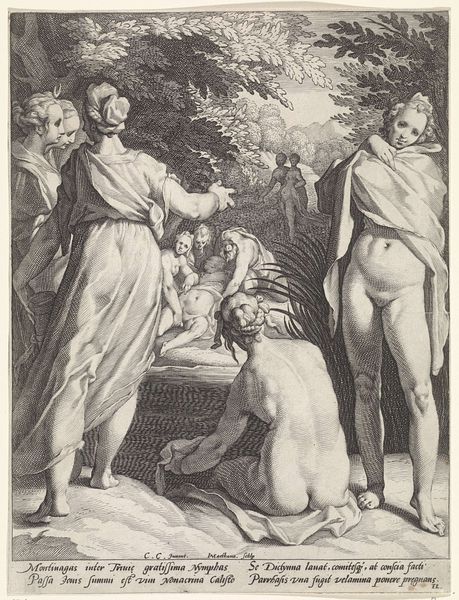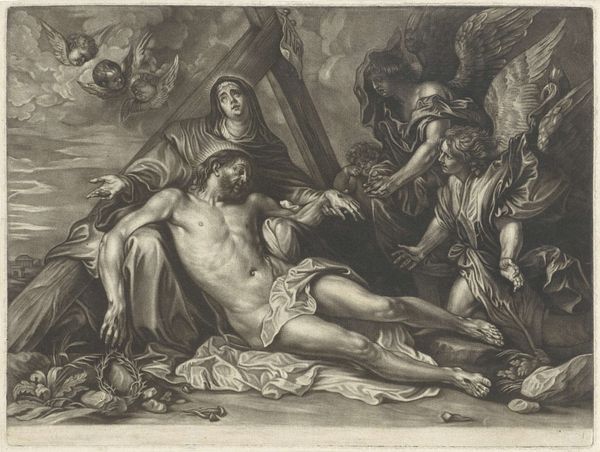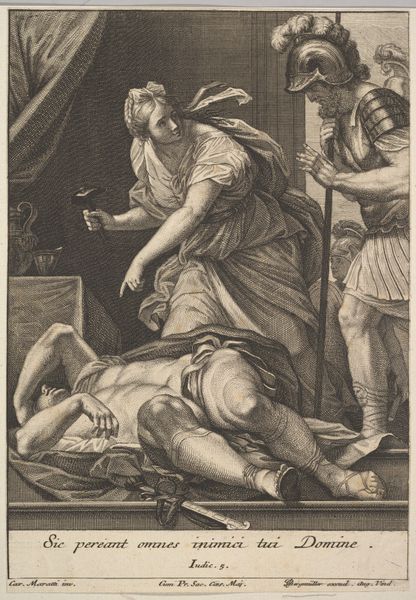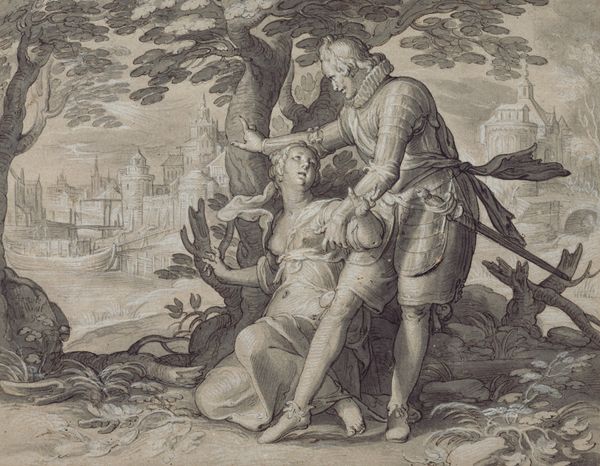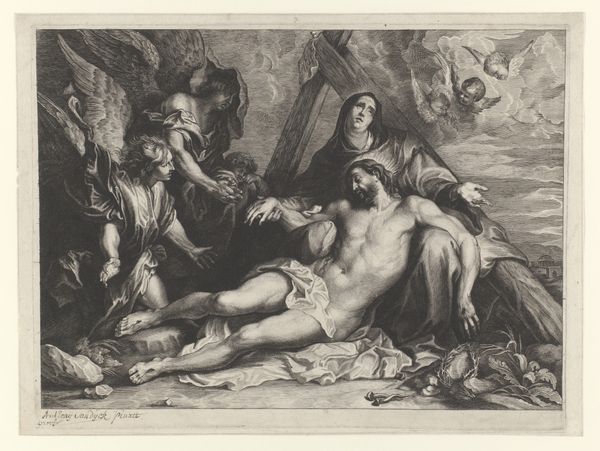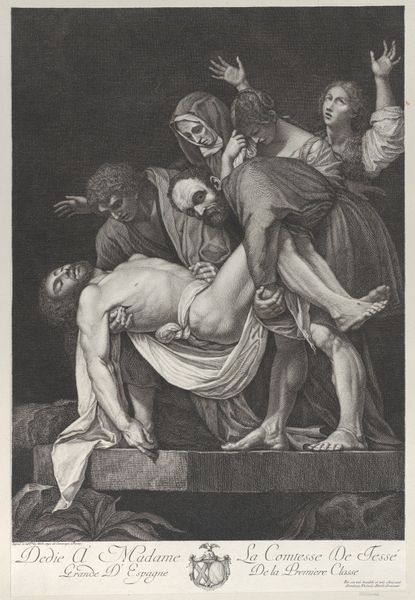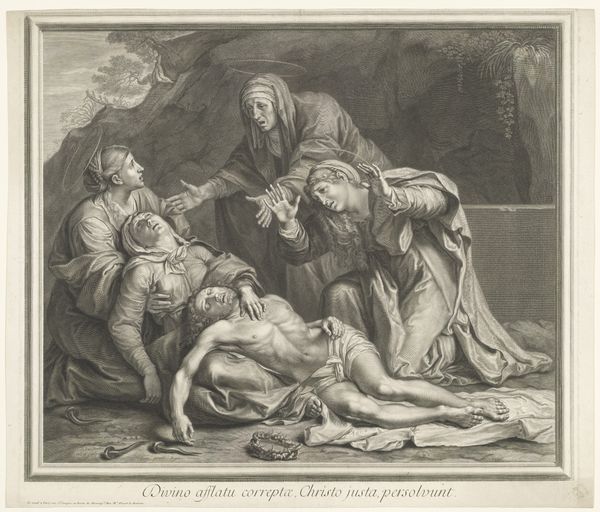
Dimensions: support: 1595 x 1448 mm frame: 1710 x 1565 x 70 mm
Copyright: CC-BY-NC-ND 4.0 DEED, Photo: Tate
Editor: Here we have Joseph Highmore's "The Good Samaritan," currently housed at the Tate. It's a sizable canvas, and I'm struck by the stark contrast between the vulnerable figure on the ground and the apparent compassion of the Samaritan. What symbols jump out at you in this scene? Curator: The offered hand, the careful swaddling of wounds…these are potent symbols of empathy, yes. But consider the men lurking in the shadows behind them. Highmore is asking us to confront indifference; the shadow figures represent societal neglect and the stark choice between observing suffering and alleviating it. Editor: So, it's not just about individual kindness, but a commentary on collective responsibility? Curator: Precisely. And the fact that the Samaritan is helping someone from a different group underscores a radical inclusivity. It’s a powerful visual reminder of interconnectedness. Editor: I hadn’t considered the figures in the background so deliberately. This has given me a new appreciation for the layers within the painting.
Comments
tate 9 months ago
⋮
http://www.tate.org.uk/art/artworks/highmore-the-good-samaritan-t00076
Join the conversation
Join millions of artists and users on Artera today and experience the ultimate creative platform.
tate 9 months ago
⋮
This painting illustrates the parable of the Good Samaritan from the Gospel of Luke. The Samaritan has bound the wounds of an injured man attacked by robbers and is helping him to his feet. Heading off into the distance behind them are the priest and the Levite, who have ignored the man’s plight. The painting was made for the aristocrat John Sheppard, possibly for a private chapel in his home at Campsey Ashe in Suffolk. This makes it a comparatively rare example of a sacred subject commissioned from a British artist by an independent patron, outside of the church. Gallery label, February 2022
